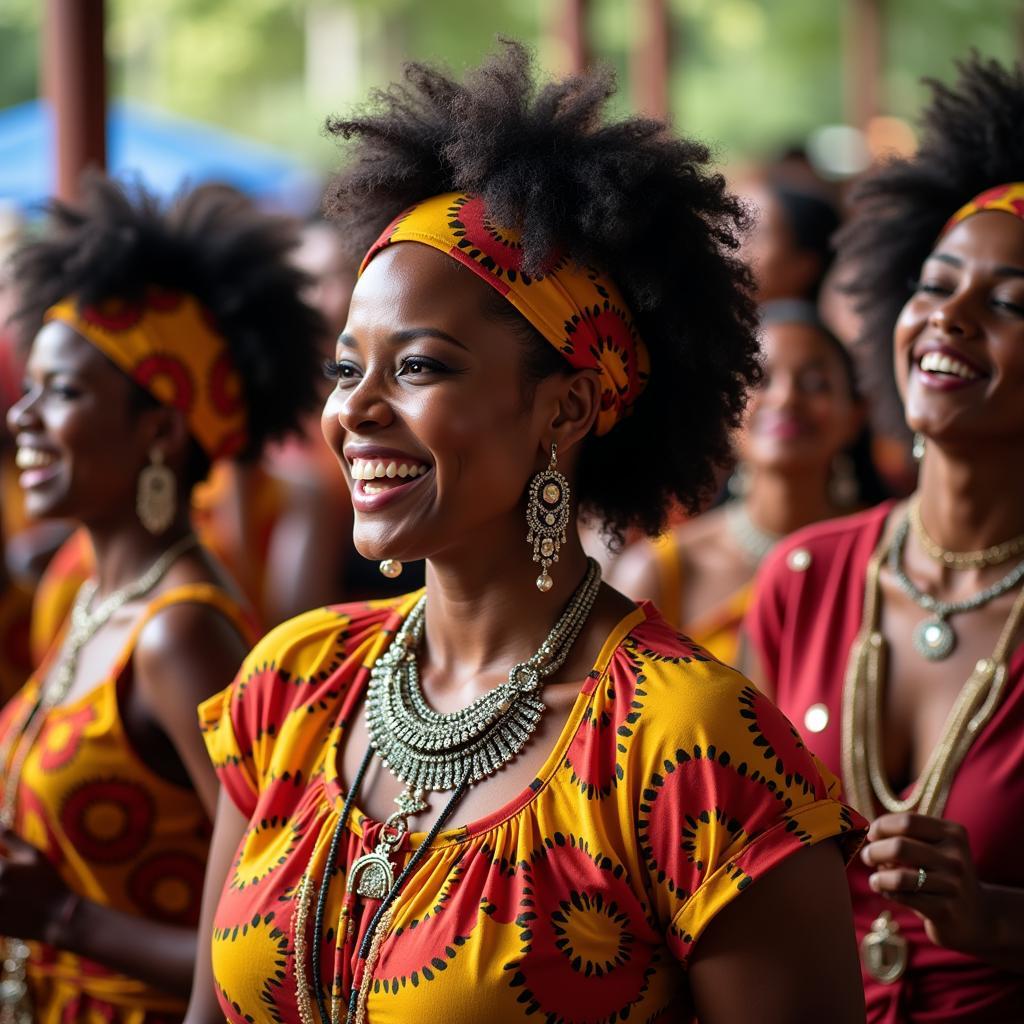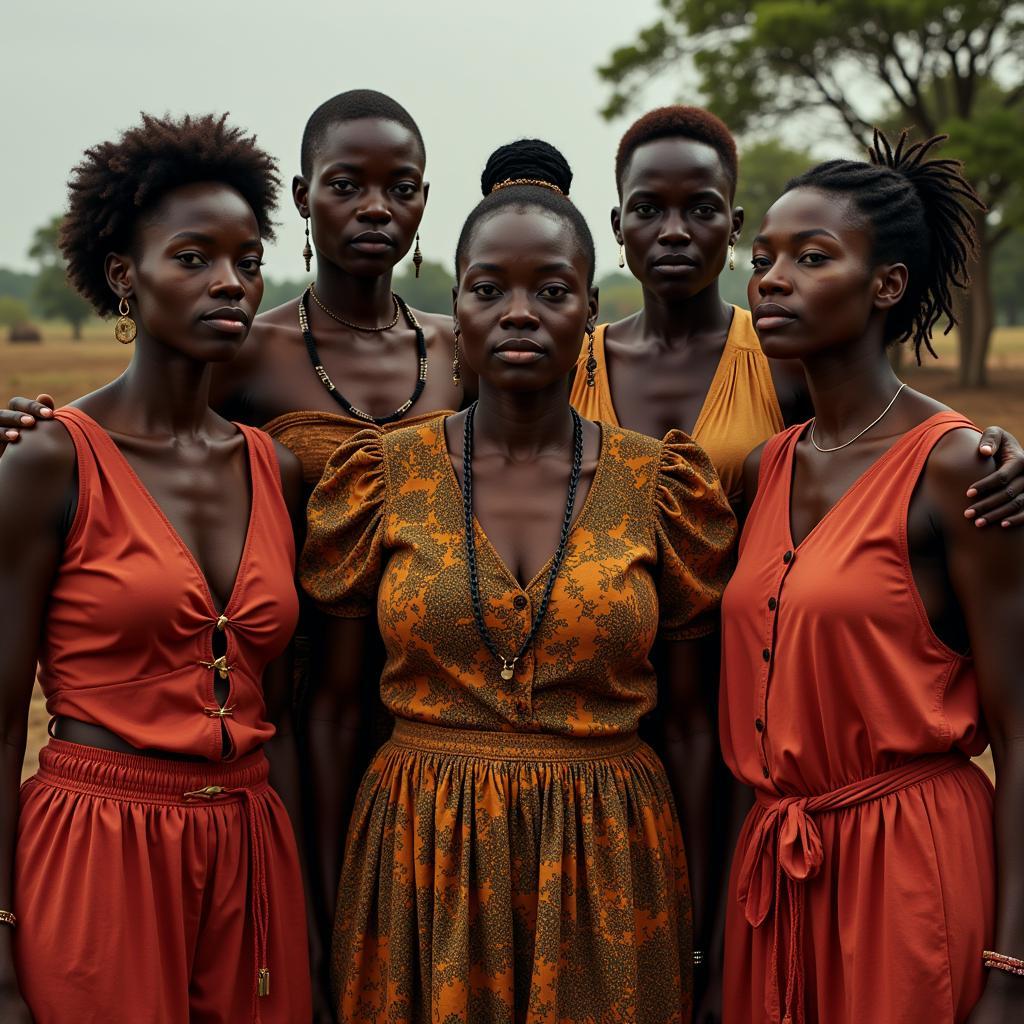African Americans on Television in the 1950s
The 1950s marked a pivotal, yet complex, era for African Americans on television. While the medium was still in its infancy, it began to reflect, and sometimes shape, the evolving societal landscape regarding race relations in the United States. This period saw the first forays of Black performers into the mainstream, but often within the confines of stereotypical roles and limited opportunities. This article delves into the presence of African Americans On Television In The 1950s, exploring the challenges and triumphs they faced.
One of the earliest examples of Black talent on television was the variety show The Beulah Show, which, while popular, relied heavily on stereotypical portrayals of domestic workers. However, shows like Amos ‘n’ Andy, despite its controversial depiction of Black characters, also provided opportunities for Black actors and writers. The show’s popularity, although problematic, highlighted the growing presence of African Americans in the entertainment industry. african american tv stars
The Struggle for Representation: African Americans in 1950s Television
The struggle for fair and accurate representation was a defining feature of this era. Many Black performers found themselves relegated to roles that reinforced existing racial biases. These portrayals often limited their artistic expression and perpetuated harmful stereotypes. Yet, these very performers were laying the groundwork for future generations who would challenge these limitations and demand more nuanced and authentic portrayals.
Breaking Barriers: Notable Figures on the Small Screen
Several individuals managed to break through barriers and achieve some level of recognition. For example, Nat King Cole hosted his own variety show, The Nat King Cole Show, becoming one of the first Black performers to host a major network program. Though the show faced challenges securing sponsorship and ultimately was cancelled, it represented a significant milestone. Other performers, like Harry Belafonte, also found success, utilizing television as a platform to showcase their talents and challenge societal norms.
The Impact of African Americans and the American Media
The impact of these early pioneers on the American media landscape cannot be overstated. They paved the way for greater diversity and representation in the decades to come. Their presence, however limited, challenged the status quo and broadened the perspectives of American audiences.
Beyond Entertainment: Addressing Social Issues
Beyond entertainment, television also became a platform for addressing social issues, particularly those related to civil rights. While coverage often focused on the struggles faced by Black Americans, it also provided a window into the realities of segregation and discrimination for many white viewers. This exposure, while often uncomfortable, contributed to the growing national conversation about race and equality. african americans and the american media
Was there diversity in roles for African Americans on television in the 1950s?
Unfortunately, roles for African Americans on television in the 1950s were largely limited to stereotypical portrayals, such as domestic workers or comedic sidekicks.
Who were some influential African American women actors on television during the 1950s?
While opportunities were scarce, actresses like Ethel Waters and Hazel Scott made significant contributions to television in the 1950s. african american women actors
Conclusion
African Americans on television in the 1950s faced significant challenges, yet their presence, however limited, represented a crucial step toward greater representation and visibility. These early pioneers laid the foundation for future generations of Black performers who would continue the fight for authentic and diverse portrayals in the media. african americans in film and television
FAQ
- What were some of the most popular television shows featuring African American actors in the 1950s?
- How did the portrayal of African Americans on television in the 1950s reflect societal attitudes about race?
- What were some of the challenges faced by Black actors in the television industry during this time?
- How did television contribute to the growing civil rights movement of the 1950s?
- Who were some of the most influential African American television personalities of the 1950s?
- How did African American representation on television evolve in the decades following the 1950s?
- What are some resources for learning more about African American contributions to television history?
For further assistance, please contact us at Phone: +255768904061, Email: [email protected] or visit us at Mbarali DC Mawindi, Kangaga, Tanzania. We have a 24/7 customer support team.

